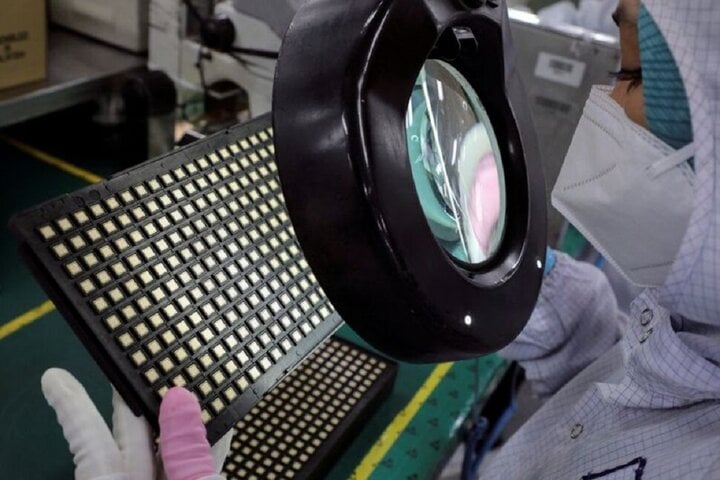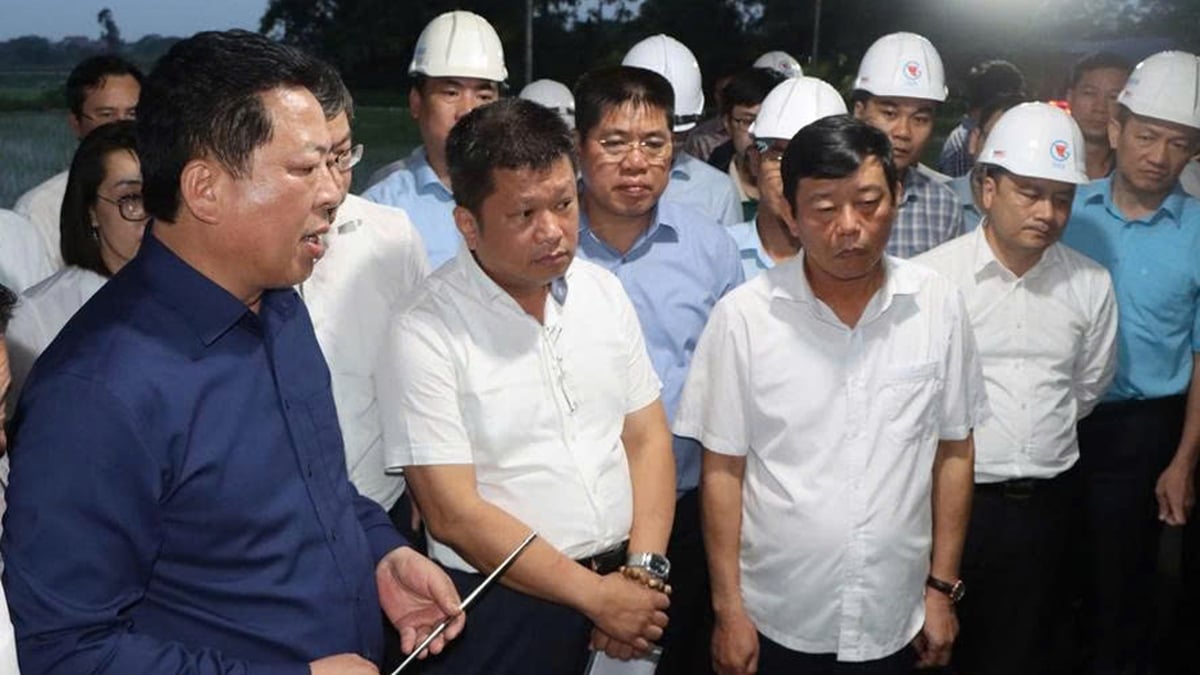Measures to hedge against risks in case the US expands sanctions on China's chip industry.
Chinese companies are asking Malaysian chip packaging companies to assemble a type of chip known as a graphics processing unit (GPU), according to three sources familiar with the matter.

(Illustration photo: Reuters)
The requests covered only assembly — which would not contravene any US restrictions — and did not include the fabrication of chips, they said. Some contracts have already been agreed, the two sources added.
The people declined to reveal the names of the companies involved or be identified, citing confidentiality agreements.
Seeking to limit China's access to high-end GPUs — which can fuel breakthroughs in artificial intelligence (AI) or power supercomputers and military applications — Washington has increasingly placed restrictions on sales of its sophisticated chipmaking equipment.
As those sanctions bite and demand for AI explodes, smaller Chinese semiconductor design firms are struggling to secure advanced packaging services at home, analysts say.
Advanced chip packaging can dramatically improve chip performance and is emerging as an important technology in the semiconductor industry. This sometimes involves building chiplets (a collection of small microcircuits) in which the chips are tightly packed together to act as a powerful “brain.”
While not yet subject to US restrictions, it is an area that could require sophisticated technology that Chinese companies fear could one day be targeted, the two sources added.
Malaysia, a major hub in the semiconductor supply chain, is seen as well-positioned to attract more business as Chinese chip companies diversify their assembly needs outside the country.
Unisem, majority owned by China's Huatian Technology, and other Malaysian chip packaging companies have seen increasing demand from Chinese customers.
Unisem chairman John Chia declined to comment on the company's customers but said: "Due to trade sanctions and supply chain issues, many Chinese chip designers have come to Malaysia to set up more supply sources outside of China to support their business."
Chinese chip design companies also see Malaysia as a good option because the country is seen as having good relations with China, affordable prices, an experienced workforce and sophisticated equipment, two sources said.
When asked whether taking GPU assembly orders from Chinese companies could potentially cause a backlash in the US, Chia said Unisem's business dealings are "completely legal and compliant" and the company has no time to worry about "too many possibilities."
He noted that most of Unisem's customers in Malaysia are from the US.
The US Commerce Department and other major chip packaging companies in Malaysia, including Malaysia Pacific Industries and Inari Amertron, did not respond to Reuters' requests for comment.
A source who is an investor in two Chinese chip startups said Chinese companies are also interested in assembling their chips outside China because it could also make it easier to sell their products in markets outside China.
Malaysia currently accounts for 13% of the global market for semiconductor packaging, assembly and testing, and is aiming to increase this to 15% by 2030.
Chinese chip companies that have announced expansion plans in Malaysia include Xfusion, a former Huawei unit. In September, the company said it would partner with Malaysia’s NationGate to produce GPU servers — servers designed for data centers and used in AI and high-performance computing.
Shanghai-based StarFive is also building a design center in Penang, while chip packaging and testing company TongFu Microelectronics said last year it would expand its facility in Malaysia — a joint venture with US chipmaker AMD.
With a host of incentives, Malaysia has attracted billions of dollars worth of chip investments. Germany's Infineon said in August it would invest 5 billion euros ($5.4 billion) to expand its power chip factory there.
US chipmaker Intel announced in 2021 that it will build a $7 billion advanced chip packaging plant in Malaysia.
Other countries such as Vietnam and India are also looking to further expand chip manufacturing services, according to Reuters.
Phuong Anh (Source: Reuters)
Source

























![[Photo] National Assembly Chairman Tran Thanh Man visits Vietnamese Heroic Mother Ta Thi Tran](https://vphoto.vietnam.vn/thumb/1200x675/vietnam/resource/IMAGE/2025/7/20/765c0bd057dd44ad83ab89fe0255b783)











































































Comment (0)